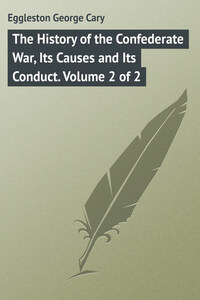Edgar Braine was never so blithe in all his life as on the morning of his suicide.
Years after, in the swirl and tumult of his extraordinary career, the memory of that June morning, and of the mood in which he greeted it, would rush upon him as a flood, and for the moment drown the eager voices that besought his attention, distracting his mind for the briefest fraction of an instant from the complex problems of affairs with which he wrestled ceaselessly.
In the brief moment during which he allowed the vision of a dead past thus to invade his mind, he would recall every detail of that morning with photographic accuracy, and more than photographic vividness.
In such moments, he saw himself young, but with a mature man's ambition, and more than the strength of a man, as he strode sturdily down the streets of the little Western city, the June sunshine all about him in a golden glory, while the sunshine within exceeded it a hundredfold.
His mood was exultant, and with reason. He had already conquered the only obstacles that barred his way to success and power. He had impressed himself upon the minds of men, in a small way as yet, to be sure, but sufficiently to prove his capacity, and confirm his confidence in his ability to conquer, whithersoever he might direct his march.
Life opened its best portals to him. He was poor, but strong and well equipped. He had won possession of the tools with which to do his work; and the conquest of the tools is the most difficult task set the man who confronts life armed only with his own abilities. That accomplished, if the man be worthy, the rest follows quite as a matter of course, – an effect flowing from an efficient cause.
Edgar Braine had proved to himself that he possessed superior capacities. He had long entertained that opinion of his endowment, but his caution in self-estimate was so great that he had been slower than any of his acquaintances to accept the fact as indisputably proved.
It had been proved, however, and that was cause enough for rejoicing, to a mind which had tortured itself from boyhood with unutterable longings for that power over men which superior intellect gives, – a mind that had dreamed high dreams of the employment of such power for human progress.
His was not an ambition achieved. It was that immeasurably more joyous thing, an ambition in sure process of achievement.
But this was not his only cause of joy. Love, as well as life, had smiled upon him, and the woman who had subdued all that was noblest in him to that which was still nobler in her, was presently to be his wife.
And so Edgar Braine's heart sang merrily within him as he strode through the cottonwood-bordered streets toward his editorial work-shop.
He entered the composing-room in front, and greeted the foreman with even more of cordiality than was his custom, though his custom was a cordial one.
He tried not to observe that Mikey Hagin, the Spartan-souled apprentice of the establishment, was complacently burning a hole in the palm of his hand, in a heroic endeavor to hide the fact that he had been smoking a cigarette in risk of that instant discharge which Braine had threatened as the fore-ordained punishment of that crime, if he should ever catch the precocious youth committing it again.
He saw the cigarette, of course, – it was his habit to see things, – and the blue wreath floating upward from the hand in which a hasty attempt had been made to conceal it, was perfectly apparent. But his humor was much too joyous for him to enforce the penalty, though he had decreed it with a fixed purpose to enforce it. Somehow the grief of Mrs. Hagin, Mikey's mother and Braine's laundress, at the discharge of her not over hopeful son, was much more vividly present to his imagination this morning than when he had promulgated the decree. He was too happy a man to be willing to make any human being needlessly unhappy.
And yet he was too strict a disciplinarian to overlook the offence entirely. He turned to the boy and said:
"It is lucky for you that I didn't catch you smoking the cigarette you have in your hand. As it seems to be smoking you instead, I don't so much mind."
With this, as the lad threw the burning roll into a barrel of waste paper – which he presently extinguished with a bucket of water – Braine took the over-proofs from their hook, and passed on into the back room, which served as the editorial office of the Thebes Daily Enterprise.
The four men sitting there presented but one bodily presence. They were: the Local Editor, the River Editor, the Society Editor, and "Our Reporter," and their name was Moses Harbell, or, if universal usage is authority in nomenclature, "Mose" Harbell.
Mose was a bushy-haired man of fifty, who had been Local Editor, River Editor, Society Editor, and "Our Reporter" on the newspapers of small river towns from a time whereof the memory of man runneth not to the contrary.
He had never once dared aspire to a more independent position as his own master. Perhaps the fact that he had imprudently married early, and now had a family consisting of a mother, a mother-in-law, an imbecile sister, a shrewish wife, nine children in various stages of progress toward grown-up-hood, and four dogs of no recognized breed, had dampened the ardor of his ambition, and inclined him to the conservative view that to draw a salary from somebody else, even though it be not a munificent one, is on the whole safer for a prudent family man, than to take ambitious risks on his own account.














